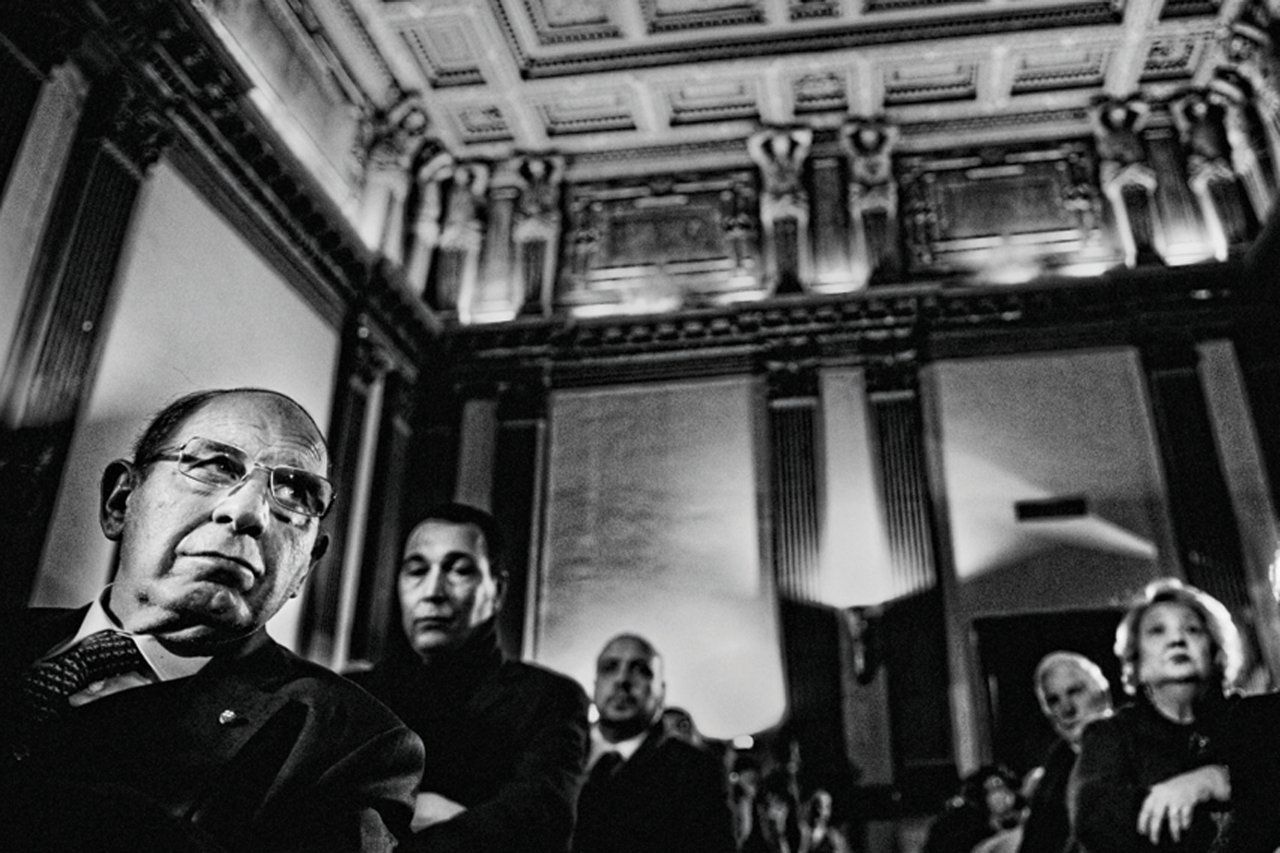
Italy, one of the most consequential countries in Europe, has been reduced to political rubble after a divided population made a spectacularly contrarian decision in last weekend's elections. Instead of opting for a safe way out of a crippling economic crisis by electing a dull but steady center-left coalition that could have aligned with a dull but steady Mario Monti, Italians opted for extremes. The wealthy voted back the devil they knew from the center-right, Silvio Berlusconi, and his erstwhile frenemies of the xenophobic Northern League. The young, unemployed, disgruntled protest set voted in a comedian, Beppe Grillo, whose Five Star Movement is akin to a political grenade hurled at the Italian establishment.
Now Italy is stuck with four pieces of a puzzle that do not fit no matter how many times you shuffle them. Pier Luigi Bersani's center-left coalition cannot pair with anyone to give him enough power to govern. Grillo can't stand him. Even though he has enough votes to make him a winner, the comedian has already snubbed Bersani, calling him a "political stalker" who won't leave him alone. Monti, for his part, hasn't got enough seats to give Bersani the boost he needs. So there is only one option: reaching out to Berlusconi himself to form a grand coalition that would include both right and left extremes. But Grillo says that would be an impossible marriage. "They can't govern," he said at a mini rally in Rome on Wednesday, where he was treated more like a rock star than a political vote-winner. "Whether I'm there or not, they can't govern."
Grillo is right. But the fact that he did so well underscores just how screwed up Italy is. Grillo's charm is that he is anti-everything. He promised a referendum on the euro and a paring down of unnecessary foreign-policy spending. He wants accountability and transparency in all sectors of public service. And he promised to introduce legislation that would make it illegal for anyone with a criminal record to serve in Parliament. (In fact, Grillo has vowed he won't take a seat himself for just that reason—he was convicted of involuntary manslaughter in a car accident two decades ago, which, by his own rules, exempts him from reaping the benefits of his own victory.) In an otherwise normal country, such fervor for change when things are as bad as they are in Italy would be welcome. But Italy has proven once again that it is not a normal country. This is a place where people work in the same bad jobs for life and often don't leave home and Mamma until well into their 30s. Change is not exactly part of the national mindset.
But there might be good news yet. What Grillo's success means beyond the confusing figures is that Italy might have actually hit rock bottom. Maybe the country is so broken that people are finally ready to shake things up. During Berlusconi's three terms at the helm of the nation, the country fractured like a mosaic, with disparaging extremes and a population caught between the wealthy entrepreneurs and the angry working class. But it didn't matter because, as they say in Italy, "fate i fatti vostri": you and yours are what count, nothing else does. Grillo was able to begin a political revolution because he saw that. He understands what Italians want, even if they don't quite know it themselves, and he was able to harness the unbridled desperation many people feel. In the best-case scenario, the president of the country, Giorgio Napolitano, will call for another vote, which is also what Grillo wants most, he says. In a new election, candidates could shuffle, and maybe the old established parties would take a page from Grillo's playbook and start listening to the people—instead of assuming they know what's best for the country.
Uncommon Knowledge
Newsweek is committed to challenging conventional wisdom and finding connections in the search for common ground.
Newsweek is committed to challenging conventional wisdom and finding connections in the search for common ground.





